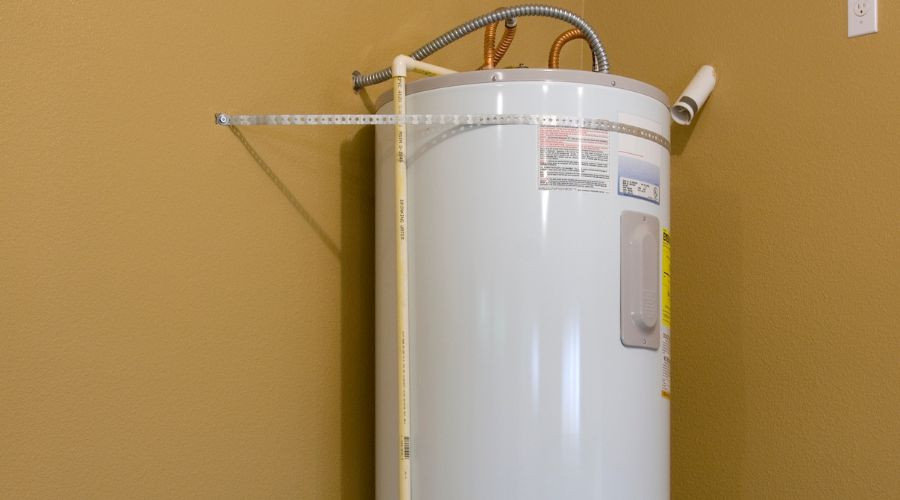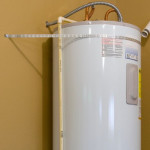What Is Done During Water Heater Maintenance and Its Benefits
A water heater is one of those household appliances that's easy to forget about until something goes wrong. When it does, it can quickly become costly and uncomfortable. Whether taking a hot shower, running the dishwasher, or doing laundry, a properly functioning water heater is essential for daily comfort and tasks.
Yet many homeowners overlook the importance of regular maintenance, potentially setting themselves up for unexpected breakdowns, higher costs, and more. This post will explore why water heater maintenance matters, what is done, and how often it’s needed.
Essential Water Heater Maintenance Tasks
 A professional water heater maintenance visit includes several critical tasks directly impacting the unit's efficiency and longevity. One important maintenance procedure is draining and flushing the tank to remove sediment buildup, which accumulates naturally from minerals present in the water supply. This sediment can create a barrier between the heating element and the water, forcing the unit to work harder and consume more energy. Excessive sediment can also cause overheating and premature tank failure if left unchecked.
A professional water heater maintenance visit includes several critical tasks directly impacting the unit's efficiency and longevity. One important maintenance procedure is draining and flushing the tank to remove sediment buildup, which accumulates naturally from minerals present in the water supply. This sediment can create a barrier between the heating element and the water, forcing the unit to work harder and consume more energy. Excessive sediment can also cause overheating and premature tank failure if left unchecked.
Another crucial maintenance task is inspecting and replacing the anode rod, often called the sacrificial rod, as it prevents tank corrosion by attracting corrosive elements in the water. A deteriorated anode rod that is not replaced leaves the tank vulnerable to rust and eventual failure. Testing the temperature and pressure relief valve is also important, as this safety device prevents dangerous pressure buildup within the tank. During maintenance, professionals will also inspect electrical connections, check thermostat settings, and examine the unit for any signs of leaks or problems.
Benefits of Water Heater Maintenance
 Regular water heater maintenance delivers significant benefits that directly impact water heaters and homeowners. Through routine maintenance, the unit can achieve better energy efficiency as scale buildup and sediment are removed, allowing the heating elements or burners to operate without working harder than necessary. This improved efficiency results in lower water heating costs while ensuring consistent hot water delivery throughout the home.
Regular water heater maintenance delivers significant benefits that directly impact water heaters and homeowners. Through routine maintenance, the unit can achieve better energy efficiency as scale buildup and sediment are removed, allowing the heating elements or burners to operate without working harder than necessary. This improved efficiency results in lower water heating costs while ensuring consistent hot water delivery throughout the home.
Additionally, well-maintained units are less likely to experience sudden failures or develop costly issues, saving homeowners money in water heater repair costs. Another compelling benefit of regular water heater maintenance is the extension of the unit's lifespan. Proper maintenance can extend its service life, which can lead to more savings as water heater replacement can be costly. Furthermore, routine maintenance helps identify potential issues before they become major problems, allowing for planned repairs rather than emergency interventions.
How Often Should Maintenance Be Done?
Regular water heater maintenance is crucial for optimal performance and longevity, with industry experts recommending a professional inspection and maintenance service at least once annually. This yearly service should include a comprehensive inspection of all components, including the anode rod, pressure relief valve, and heating elements, along with a thorough flushing of the tank to remove sediment buildup.
However, because of the high mineral content, homes with hard water may need to perform more frequent maintenance tasks, such as draining and flushing the water heater, to prevent accelerated wear and efficiency loss. The anode rod, a crucial component that prevents tank corrosion, should be inspected annually during maintenance but typically requires replacement every three to five years under normal conditions. However, this timeline can be shortened in households with hard water, where the high mineral content accelerates the rod's deterioration.
About Water Heaters Only, Inc.
Water Heaters Only, Inc. is a family-owned company serving the Phoenix area. They offer same-day service and flat-rate pricing. Call them for water heater maintenance services in Phoenix, AZ.



